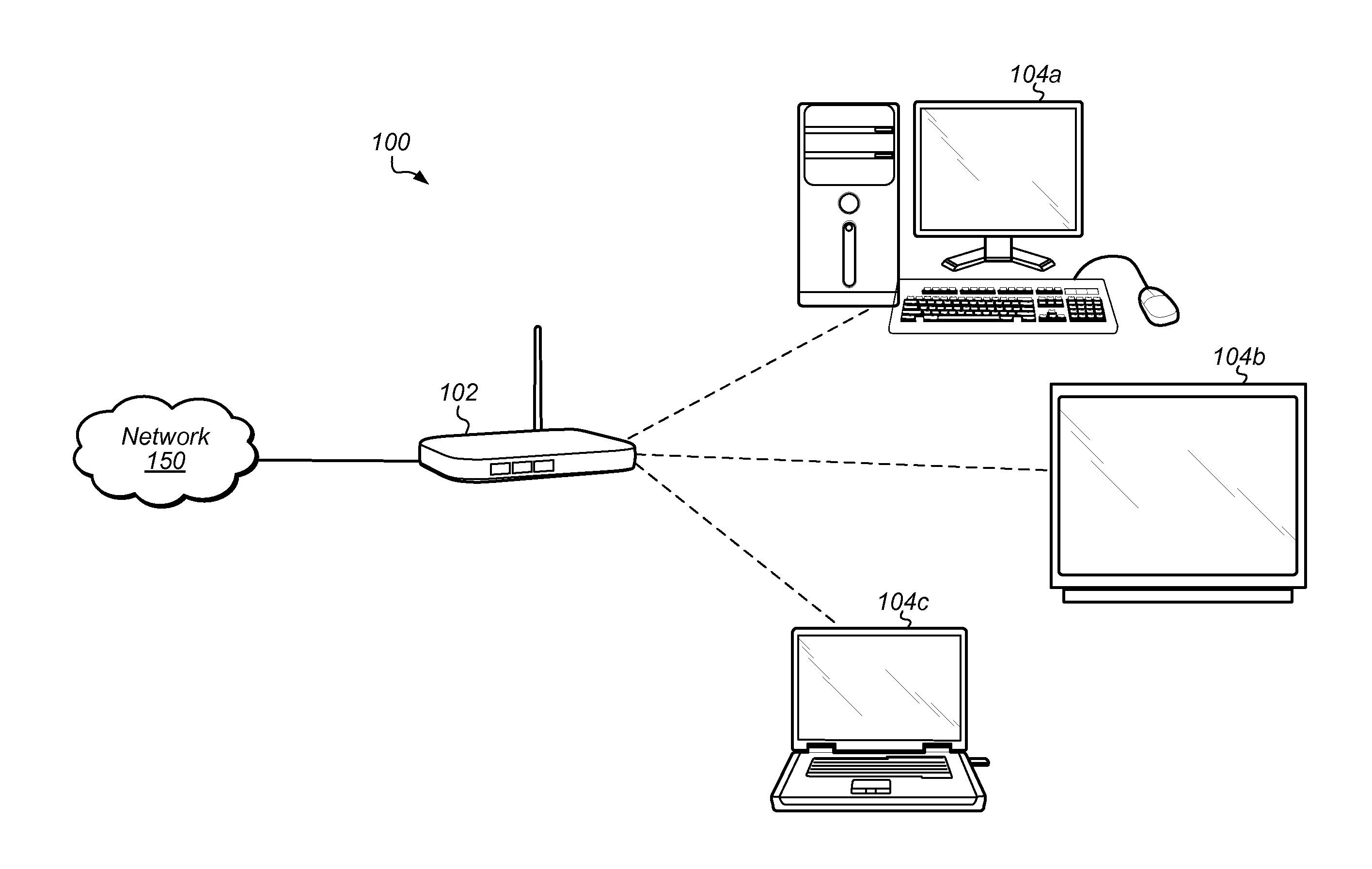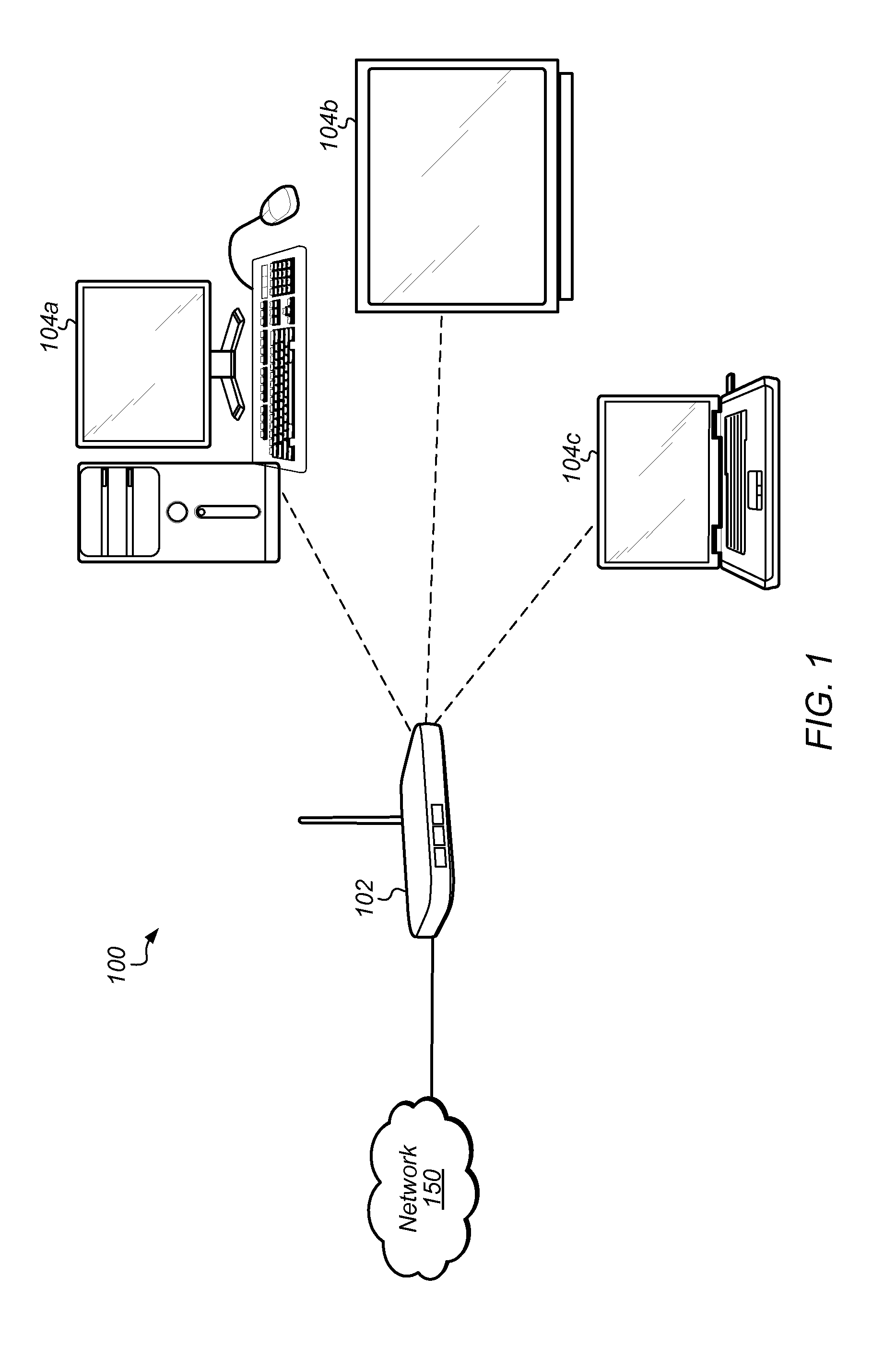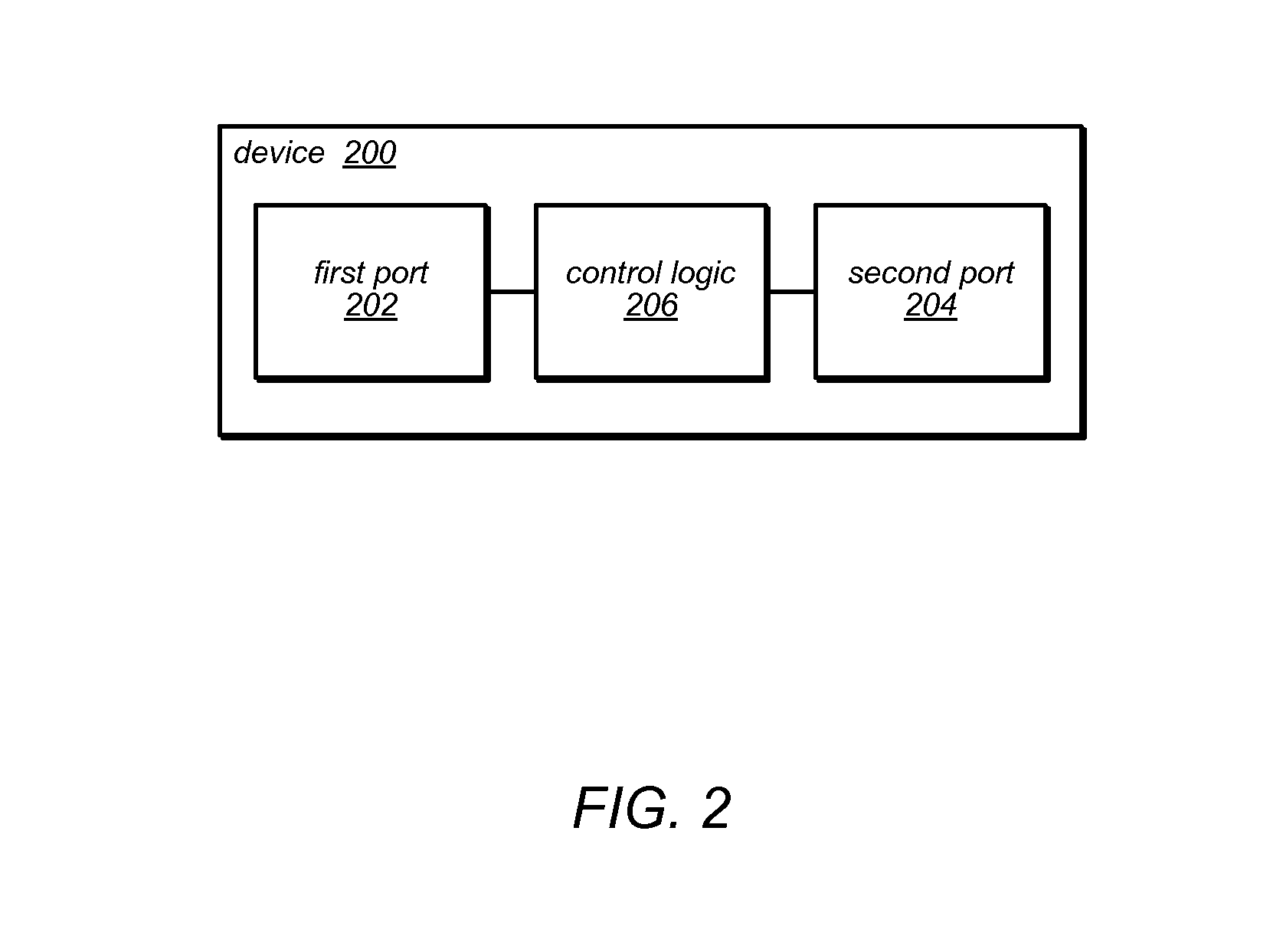Video stream protection
a video stream and protection technology, applied in the field of wireless communication, can solve the problems of video stream quality, video stream quality loss, and stringent qos requirements of net available bandwidth, and achieve the effect of protecting as many video streams, and reducing the cost of wireless bandwidth utilization
- Summary
- Abstract
- Description
- Claims
- Application Information
AI Technical Summary
Benefits of technology
Problems solved by technology
Method used
Image
Examples
Embodiment Construction
Terms
[0034]The following is a glossary of terms used in the present application:
[0035]Memory Medium—Any of various types of memory devices or storage devices. The terms “memory” and “memory medium” are intended to include an installation medium, e.g., a CD-ROM, floppy disks, or tape device; a computer system memory or random access memory such as DRAM, DDR RAM, SRAM, EDO RAM, Rambus RAM, etc.; or a non-volatile memory such as flash memory, hardware registers, a magnetic media (e.g., a hard drive), or optical storage. The memory medium may comprise other types of memory as well, or combinations thereof. The term “memory medium” may include two or more memory mediums.
[0036]Computer System—Any of various types of mobile or stationary computing or processing systems, including a personal computer system (PC), mainframe computer system, workstation, network appliance, Internet appliance, mobile phone, smart phone, laptop, notebook, netbook, or tablet computer system, personal digital ass...
PUM
 Login to View More
Login to View More Abstract
Description
Claims
Application Information
 Login to View More
Login to View More - R&D
- Intellectual Property
- Life Sciences
- Materials
- Tech Scout
- Unparalleled Data Quality
- Higher Quality Content
- 60% Fewer Hallucinations
Browse by: Latest US Patents, China's latest patents, Technical Efficacy Thesaurus, Application Domain, Technology Topic, Popular Technical Reports.
© 2025 PatSnap. All rights reserved.Legal|Privacy policy|Modern Slavery Act Transparency Statement|Sitemap|About US| Contact US: help@patsnap.com



